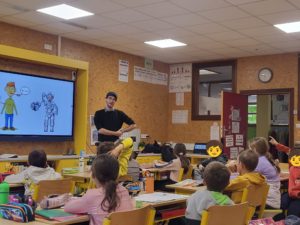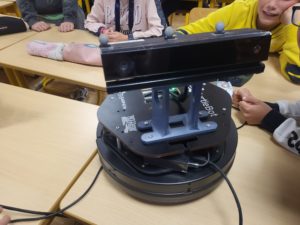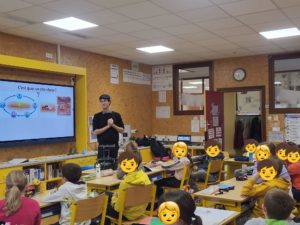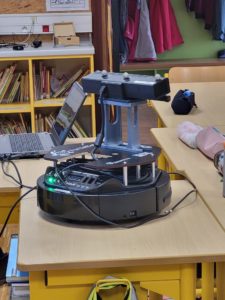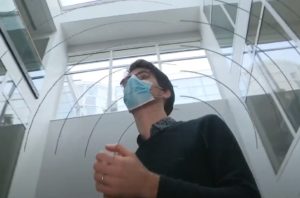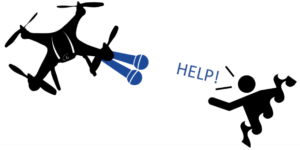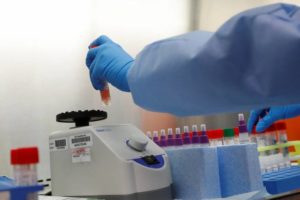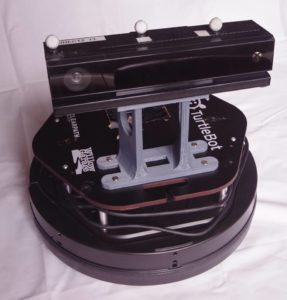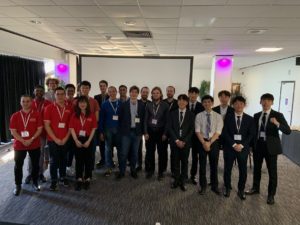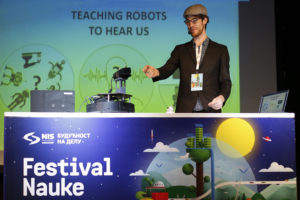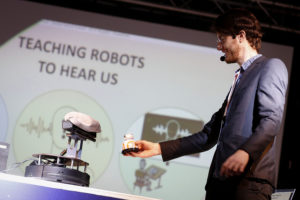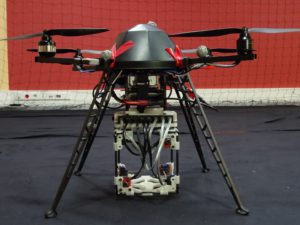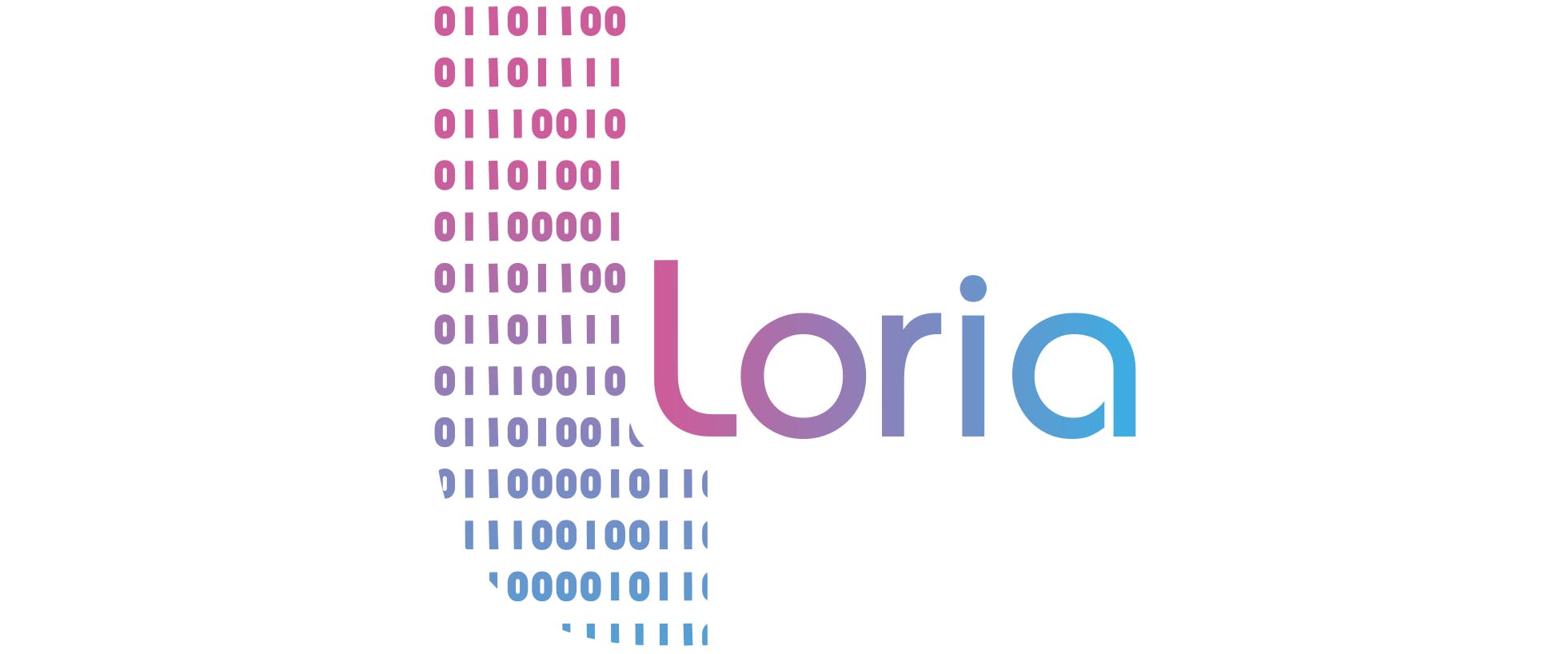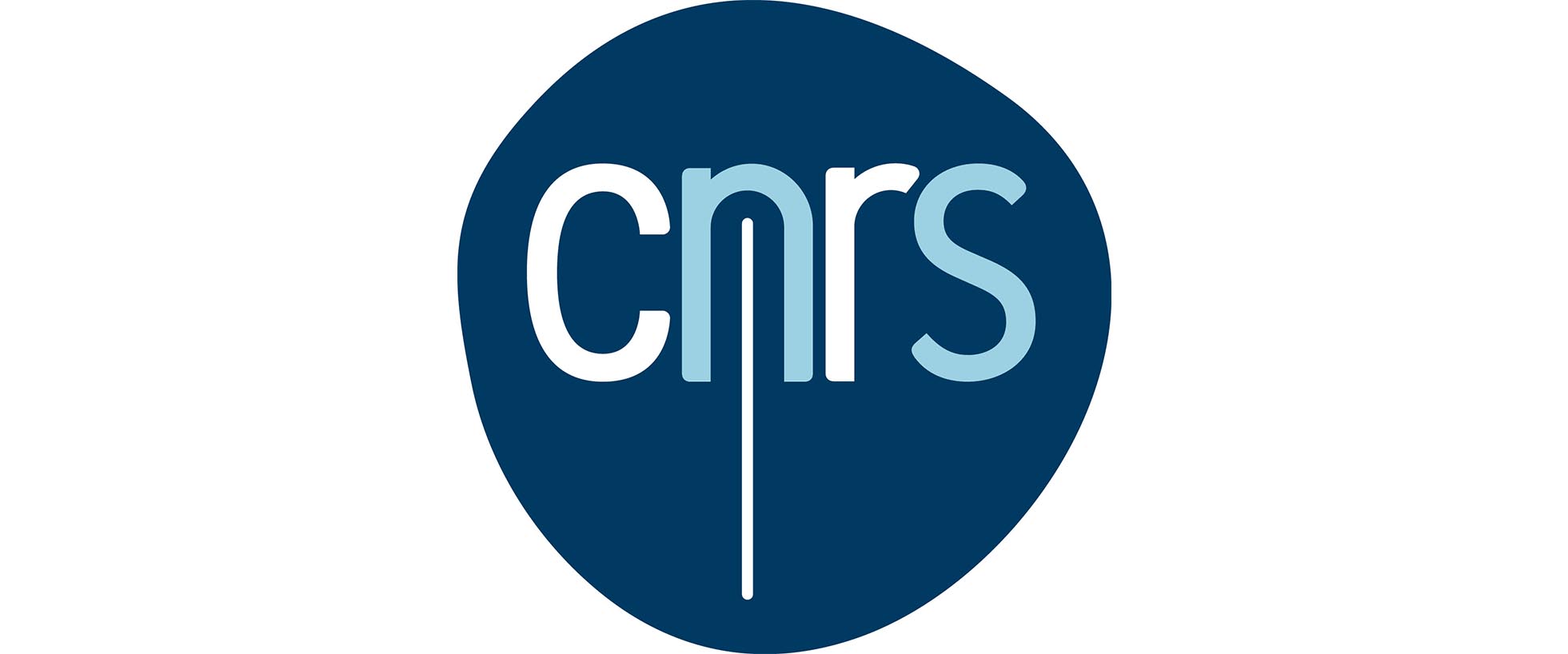Je suis intervenu vendredi 3 octobre 2025 dans 3 classes d’école primaire dans la région de Colmar avec Robi le robot qui réagit aux sons:
- Ecole Jean Scherer, Jebsheim, dans la classe de Céline Moser (CM1-CM2)
- Ecole des chênes, Horbourg-Wihr, dans la classe de Célia Meguin (CE1-CE2)
- Ecole Brant, Colmar, dans la classe d’Isabelle Clo (CM2)
J’ai reçu un merveilleux accueil! J’ai été touché par le dynamisme, la curiosité et l’engagement des élèves, tous désireux de poser des questions ou de répondre aux miennes. J’ai pu aborder ce qu’était le métier de chercheur, la démarche scientifique, le travail d’équipe, puis qu’est-ce qu’un robot, un ordinateur, un programme informatique, l’intelligence artificielle, qu’est ce que le son, et enfin comment apprendre aux robots à nous entendre.
Céline Moser a écrit un joli billet de blog sur ma visite, consultable ici: https://ec-jebsheim.site.ac-strasbourg.fr/2025/10/04/les-robots-peuvent-ils-entendre/.
Voici quelques photos qu’elle m’a gentiment envoyé:

